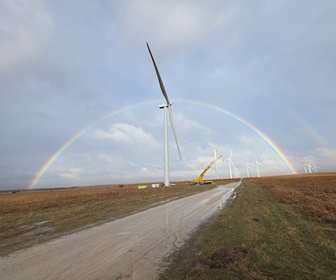Electric remotely operated vehicles (eROVs) that perform maintenance and repair tasks on offshore wind turbines are being developed by the National Robotarium in partnership with Fugro. Deployed from Fugro’s uncrewed surface vessels (USVs), the companies are working closely together to explore how the offshore energy sector can benefit from advancing this autonomous technology.
The £1.4 million Underwater Intervention for Offshore Renewable Energies (UNITE) project aims to improve health and safety for workers by reducing the need for potentially hazardous offshore maintenance missions conducted by crewed support vessels.
The remotely operated robotic systems will address a number of additional sector challenges including supporting industry to reduce carbon emissions, improve offshore turbine productivity through reduced downtime, and make maintenance and repair exercises more cost-effective and timely. In addition to supporting the uncrewed and remotely operated vessels, the research project will help develop autonomous and semi-autonomous ROVs capable of conducting subsea inspection, maintenance and repair tasks which can be monitored onshore whilst remotely deployed and operated from anywhere in the world.
Researchers will specifically focus on developing technologies which allow robots to build more accurate maps of the subsea terrain to better navigate obstacles and targets. The project will also explore how robots autonomously interact with underwater structures, such as grasping or moving objects, whilst being subject to external forces like changing currents or rough seas.
The project will be delivered by researchers from Heriot-Watt University and Imperial College London working within the National Robotarium, the UK’s leading AI and Robotics centre, in collaboration with Fugro and funded by the Engineering and Physical Science Research Council, part of UK Research and Innovation.









